No two people feel the same exact way about any film. Thus, Team Experience is pairing up to debate the merits of each of the big awards season movies this year. Here’s Abe Friedtanzer & Eric Blume on The Whale
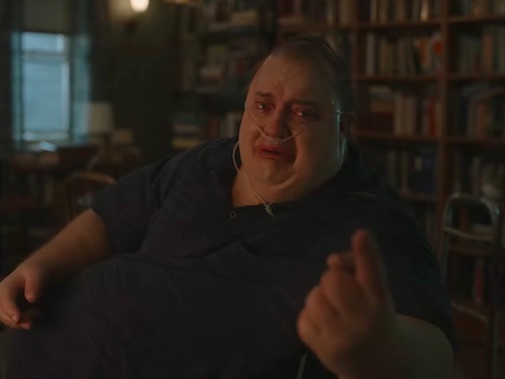
ABE: Eric, I distinctly remember last year when I mentioned that my favorite movie was CODA that you wanted to start a series where you just kept telling me how bad it was. Well, fortunately or unfortunately, I hear you detest my favorite movie of 2022 just as much, so now you get that chance! I was recently a guest on The Rolling Tape podcast where we had five panelists discussing The Whale and expected someone to be in the "hate it" camp, but it turns out we all loved it. For me, the experience of seeing it in a completely packed press and industry screening at the Toronto International Film Festival back in September was an astounding one, and I left feeling entirely impressed with pretty much everything about it. I soon read about the issues some people had with it, but rather than guess what rubbed you the wrong way, I'll invite you to say your piece before I get to defending my top film of the year.
ERIC: Abe! It's a good thing we genuinely like each other enough to dive into this all in good fun. It's not my fault you like badly-written films!
Before we get to the acting and directing, let's start with the writing. The script for The Whale, to me, was schematic and obvious. From the moment the film starts, when Charlie (Brendan Fraser) is teaching his class without showing his face, you know that one of the big moments at the end will be... drum roll ... showing his face to the students! An immediate thud out of the gate.
Then a series of characters enter and exit the stage (err, his apartment!) to have short scenes with our protagonist. Some of them are more convincing than others. The basic logic of this film is dubious: Charlie and Mary (Samantha Morton) had a daughter Ellie (Sadie Sink), and they have apparently lived across town from each other (?) for over ten years with no interaction. One day the daughter just shows up, conveniently moments before Charlie is about to die, so he can get his parental redemption? Then we have Thomas (Ty Simpkins) an extraneous character right out of a 1950s play by William Inge, a young kid who is proselytizing for some sort of strict religion. Coincidentally that religions was the cause of suicide of Charlie's boyfriend, years earlier. The dead boyfriend's sister Liz (Hong Chau) stops by every day for over a decade(!!!) after her long nursing shifts to take care of Charlie? Who are these people? I mean, thiis a pileup of coincidences of near-epic proportions.
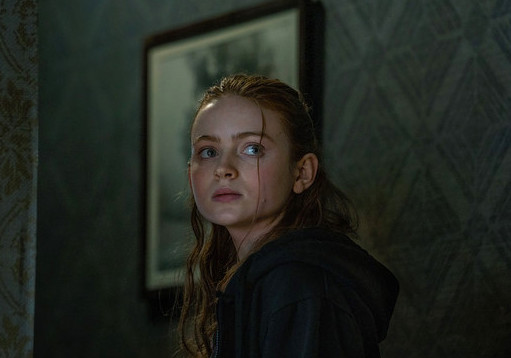
Then there's a Blanche DuBois/Young Boy character, a pizza delivery guy, who makes an appearance, but never quite figures into things. Each character is more hackneyed than the next, and the (melo)drama is almost comically moldy. I love theater, I love plays, I love movies that preserve a "play-like" intensity in a confined setting. But none of these characters feel like flesh-and-blood human beings. They're maybe the best characters from a playwriting assignment for undergraduates. Tell me why you love this script.
ABE: I do think that there are times when I sit down to watch a movie or an episode of TV and feel entirely unconvinced by the characters and the world they're inhabiting, which makes it impossible for me to get drawn in. When that's not the case, however, I don't question the validity of plot points or character appearances. I certainly didn't do that here. I remember noticing the blocking in one of Sadie Sink's scenes when Ellie feels almost pulled back in and unable to exit the apartment/stage. For me that worked well since it felt like she was aware that she could leave and Charlie could not. The bigger moments, like that computer reveal scene and the film's ending, aren't as important to me as the smaller, subtler interactions that spoke volumes. I was genuinely interested in these conversations, including Liz and Thomas, and I was completely riveted by Ellie's anger, which we then saw echoed spectacularly by Samantha Morton as Mary late in the film. I'll return again to that idea that, if you're not put off by something and do get sucked in, you don't tend to question what you're watching and its legitimacy.
Let's move on to Darren Aronofsky's direction - I'm sure you have plenty to say about that.
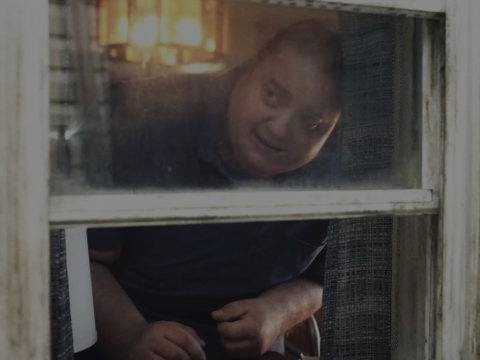
ERIC: I absolutely love Aronofsky. Such a singular talent, and I think Pi, Requiem for a Dream, and Black Swan have streaks of absolute genius in them. Heck, I even loved mother! All of those films allow Aronofsky to build his unique fever-dream version of reality, He soars when he's allowed to lean into his gonzo sensibilities. So basically I think he's just the wrong director for this material. Aronofsky doesn't really excel at the tender reveals of the human condition. He works best when situations are heightened and he puts you in a pressure cooker. With a piece like The Whale, which requires a director of incredible depth of feeling and subtle finesse, Aronofsky's skills dry up: he has compassion for his characters and actors in this film, but it stops there. He doesn't know how to look at them deeply: he's just not that guy. He's never been that guy. His previous near-masterpieces work so well not because he's exposing human behavior, but because he's sensationalizing it: we're directly live-wired into the heads of his protagonists who are all going crazy, and that's exciting cinema.
With a play like The Whale, you need a director who has the grace and skill to divert you from the contrivances of the script (like, say, Robert Altman did for Come Back to the Five and Dime, Jimmy Dean, Jimmy Dean) by the sheer force and gravitas of the filmmaking. Aronofsky distills all these characters to one-wave vibes and tiny arcs, and the dialogue sounds leaden as a result. I'm interested to hear your rebuttal here before we get to the very troublesome acting...
ABE: I'm not sure I would defend Aronofsky that much only because I didn't feel the direction as strongly, which I think is completely fine. The lack of a particular directorial vision made me focus more on what was being said and how the actors were saying it. My favorite Aronofsky film is actually The Fountain, which is absolutely something else. This one is more like The Wrestler, but more powerful. While I would award this film prizes for its script and its acting, I don't think I would mention its directing over a handful of other films I really liked (that I'm sure you didn't).
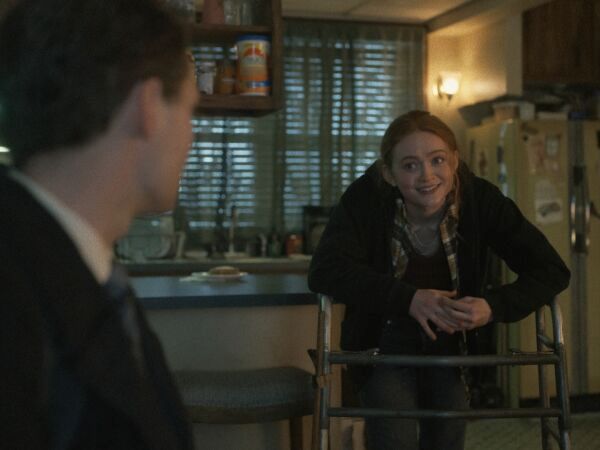
I'll start with my praise for the acting before you rip it to shreds. Sink truly impressed me with the rage she walks on with and the intensity of her performance, which allows only a bit of vulnerability as it goes on. Seeing Samantha Morton as her mother felt like truly fitting casting based on that anger. (Morton is also a standout in one She Said scene from this year). Ty Simpkins and Hong Chau moved me most in their one-on-one interactions, though it's also fascinating to see them interact with others, particularly Simpkins with Sink and Chau with Fraser. I still do believe Fraser will (and should) win the Oscar since there's such a remarkable depth of generosity and warmth that he embodies as Charlie. It goes much further than just a fat suit or makeup. He truly brings this man to life, something that made the film in turn come alive. It's an extremely genuine and compelling performance, and I'm bracing myself for your analysis.
ERIC: Believe me, Abe, there is no joy for me in having this split decision with you! I really thought I'd love this movie.
Sadie Sink...hmmm. She's clearly a talented young actress, but going back to Acting 101, which is about objectives and obstacles, she doesn't have much to work with. If Ellie's overarching objective is to connect to her dad, she has no obstacles (he is desperate to connect with her). So scene to scene, we're unclear where Ellie is coming from, because she basically keeps coming back to the apartment just because the script says she should. There's no gradation on that connection. In most scenes Ellie plays the same contrived notes, some variation on "I'm here to see you, but I'm going to be awful the whole time I'm here" which after the fourth or fifth scene feels more than repetitive. Sink does some nice scene work, but it's terribly one-note and her "moments of vulnerability" are telegraphed in a very actressy sort of way. Again, she executes them nicely, but it feels manufactured.
Samantha Morton is a great actress, but I wasn't sure what she was playing here? Again, are we to believe that Mary and Charlie have lived across town from each other for years, have barely communicated, and yet one day she just walks into his apartment and they kind of just pick up where things left off? Aronofsky films her unflatteringly and she has no dimension. The less said about Ty Simpkins the better, methinks...but I can't imagine any young actor would be able to bring that sketchily-written, only-there-for-the-spiritual-theme character to life.
I will be shocked if Fraser wins the Oscar over Colin Ferrell. I'm going to argue that Fraser is just okay. Yes, it pains me to say that. I do agree, though, that he is fully locked into character and brings a great amount of feeling. And if you flip the objectives/obstacles argument to his side, he has a lot to play, and he acquits himself admirably. Still, he exists on only one plane: the sad, open-hearted, fully good person full of regret and pain. Fraser plays his beats with a lovely purity, but there's no subtext, no undercurrents beyond what he's immediately playing. We get no real moment of his feeling towards his dead boyfriend, or any sense of actual sexuality from Charlie. We find out that he has actually treated Liz horribly, making her serve him when he had money to prevent it. But that revelation is immediately dismissed and never tackled. That information, if it was handled differently, would have allowed us to see Charlie in a different, less saintly way. There's nothing challenging about Charlie; he's presented to the audience to be loved and adored with little question. There's just not much there there, and Fraser was, I think, so focused on keeping things simple and true that he missed other opportunities to create a more complex character.
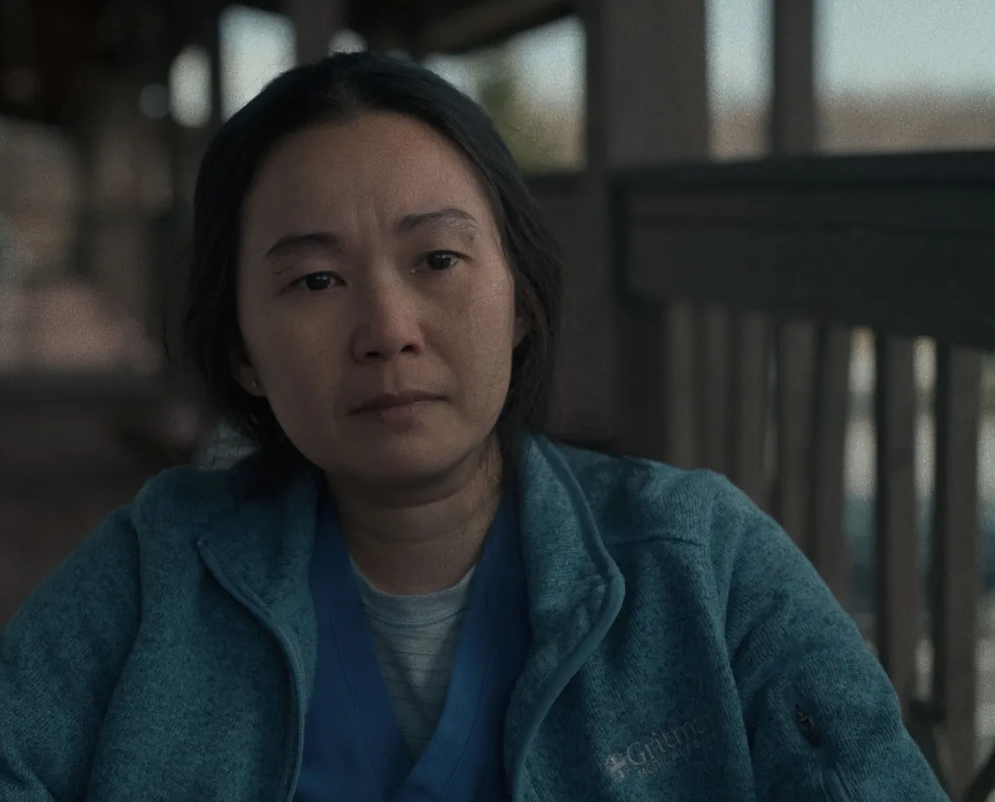
To me, Hong Chau was the acting MVP. Liz is the only character who lives beyond the page. Chau makes you feel her exhaustion from her long nursing shifts, her humor, and her anger about her obligation to Charlie. Conversely to Fraser, you really feel Chau's connection to her dead brother (Charlie's boyfriend) and that she's clinging to him because he's the only thing left that connects her to her brother. Chau also gives you that sense of never quite fitting into the community, so she makes sense of Liz's isolation and loneliness. Hong Chau is often able to spin line readings in ways other actors could never dream, and she finds a few zingers here, too. She really contributes to the film.
Now fight back with me, Abe! Tell me further why you loved the acting and loved this movie so we can go back to our separate corners and wrap things up.
ABE: Eric, what worked most for me about the acting, specifically Fraser vs. Sink and Morton, was the juxtaposition of sincerity and anger. We’re only seeing Charlie in this moment, and of course people like to look back on things and feel as if they were good people. Charlie was not a perfect partner, not a great friend to Liz, and far from a great husband and father. At this point in his life, he’s reached a place of acceptance, where he knows he hasn’t been perfect and wants to only look at things in a positive way. That shines through tremendously in Fraser's performance, and you get a sense of how Charlie is being the person he wants to be. That held power for me, and watching Ellie slowly open up to him over the course of the film was also poignant. Sink is one of the standouts of Stranger Things, and here we get to seer acting entirely opposite adults and holding her own. Simpkins' role wasn't the most memorable but I found the contradiction between his fervent beliefs and his youth interesting.
I was surprised to come out of the film hearing the most buzz, aside from Fraser, for Chau. I do think she's very good but I hadn't picked her out as a standout. I do think it's remarkably impressive that she had three films making the festival circuit in 2022 that all showcase radically different turns: this, The Menu, and Showing Up, which A24 pushed to 2023. She's a terrific talent who is finally getting great roles after her breakthrough performance in Downsizing and her superb TV work on Homecoming and Watchmen.
I want to note that I've only seen The Whale once. I rarely watch movies more than once these days simply because there's too much to see, but I would be curious if this would hold up as well on a second viewing. What you've said hasn't discouraged me since the elements you found disappointing and distracting still sit well with me. I wish that this was an awards season success story, but at this point I'm expecting four Oscar nominations - Fraser, Chau, Samuel D. Hunter, and makeup and hairstyling. Only the first and last are guaranteed. Do you have any final thoughts on the film or its awards prospects?
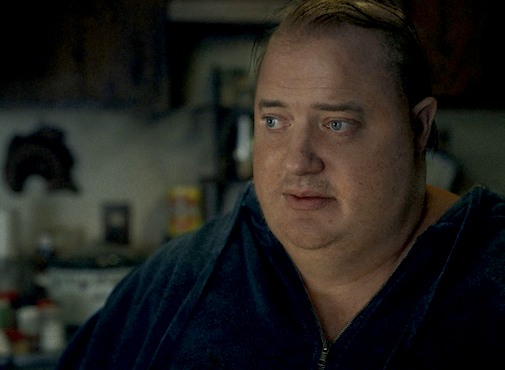
ERIC: Abe, I can tell you had a very emotional response to the movie, and I'm glad it moved you. I think what worked for you is part of what makes me so resistant to the piece. In Hunter's very messy writing, he has Charlie claiming that he wants truth, but in fact he doesn't want truth, he wants illusion. He keeps claiming his daughter is "perfect" when of course she is horrible. He wants to not face what a bad friend he's been to Liz. If you're Tennessee Williams, you have the poetic talent to movingly portray a character who treasures illusion more than truth...but here, Charlie felt poorly conceived by Hunter. I felt like the character was not fully realized. And I won't even get started on the portrayal of the two gay characters as noble tragedies, robbed of any real sexuality or passion so that everyone in the audience feels comfortable while Simpkins' character reads Bible(?) verses for his "redemption".
I think the film will net two Oscar nods, for Fraser and Makeup/Hairstyling, with a real shot to win the latter. One thing I did like about the film was that they didn't shy away from the monstrous overeating and painful physical limitation of the main character. Fraser does a bunch of small physical things that are technically accurate to that level of obesity that look and feel true.
I had a lot of fun going back and forth with you on this, and I always enjoy good discourse done in good fun and with respect towards my colleague. Thanks for your willingness to go toe-to-toe on this!
other "split decisions"
- All Quiet on the Western Front - poetic or vacuous?
- Babylon - thrilling or interminable?
- Everything Everywhere All At Once - essential or exhausting?
- The Fabelmans - joyous or phony?
- TÁR - utterly engrossing or underwhelming?
- Triangle of Sadness - facile or multi-faceted?